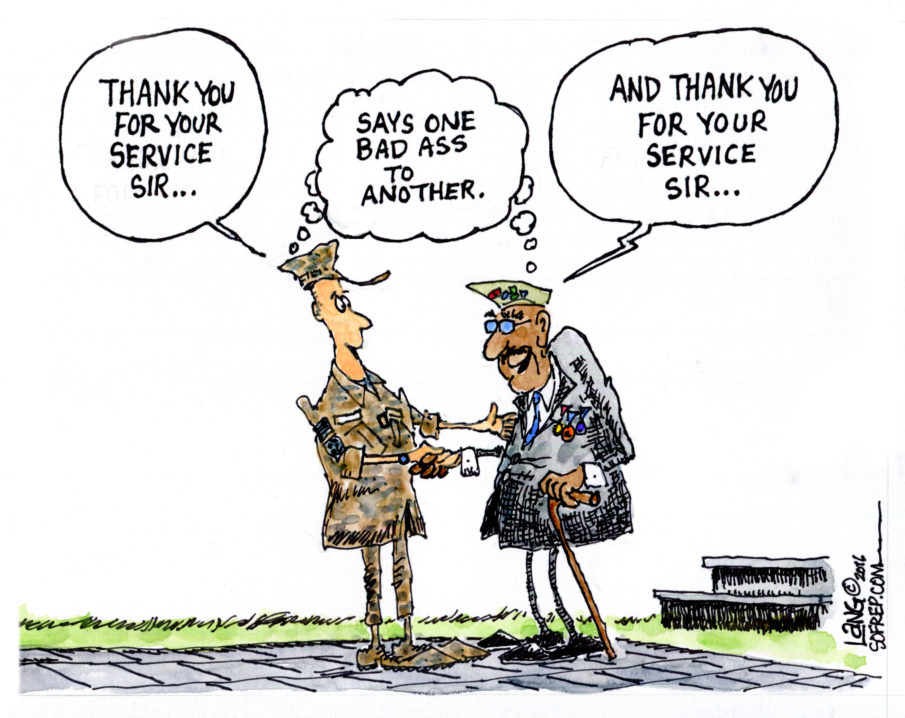I met a man once that fought in the Battle of the Chosin Reservoir. He was a small man, and looked even smaller because his age prevented him from standing completely upright. He wore thick glasses that rested across a crooked nose and a deep purple scar on his cheek. We exchanged greetings and I expressed my sincere gratitude for his part in what, in the eyes of my generation, was a legendary display of courage and heroism. He smiled, my hand in his, and told me it was okay to ask him about the scar.
I told him I had barely noticed it, which was the sort of polite lie you tell someone you care for or respect. He laughed softly in the polite way you laugh at a child’s joke.
The scar that took up the better portion of his right cheek, he explained, was because his rifle had frozen to his face in the bitter cold of the seventeen-day battle that took place amidst some of the harshest winter conditions of the Korean War. He, and thirty thousand other men, surrounded and exhausted, held off an estimated one hundred and twenty thousand Chinese troops for half a month. Those numbers are hard to comprehend, but far harder to survive.
I stood there speechless for a moment, unsure of how to respond to something so incredible, tragic and heroic. He chuckled again, this time sincerely, and placed his hand on my shoulder.
“They drafted us son. We fought because we had to and we made it because we were lucky. You boys… you signed up for this shit.”
It had never occurred to me that previous generations of veterans would be looking on, watching me and those who served with me. I felt self-conscious on a level I never had before. I wasn’t a hero. What right did I have to claim the same title as the man standing before me. He was a veteran. He represented the very best in all of us.
I tried, through muddled words and embarrassment, to express my gratitude for his kindness, but he raised his weathered hand and stopped me, “I’m no more a hero than a bus driver or a school teacher, and neither are you. We do what we’re told, we fight when we have to, we try to make it home.”
I would remain on active duty for two more years after that day. Over time, his words would come to mind again and again. Sometimes, I’d recall them in the middle of a grueling run. Sometimes, I’d think of him during a rainy field op. On at least one occasion, it came to mind just before notifying a family that their son, their brother, would never come home.
Veterans Day isn’t about celebrating our own service. We few who served raise our glasses to celebrate the brave men and women that served before us, with us and after us. That man, as humble as he was brave, was a hero. He may not have set out to become one and I know he didn’t consider himself one, but that’s the thing about being a hero: it’s rarely on purpose.
On this Veterans Day, I want to express my humble gratitude to the men and women who served before me. Heroes like my father. Heroes like that man who taught me that heroism is about a willingness to take action, a willingness to fight, and a drive to make it back home to those we love.
While in uniform, I met countless men and women from every branch that amazed me with their willingness to sacrifice, determination to succeed, and passion for whatever they called home. Since leaving active duty, I’ve met countless more that continued those tenants of heroism in their civilian lives. Men and women like the staff I’ve encountered in my as yet short tenure with SOFREP. Men and women like those we’ll find in the comments section below this article.
Already have an account? Sign In
Two ways to continue to read this article.
Subscribe
$1.99
every 4 weeks
- Unlimited access to all articles
- Support independent journalism
- Ad-free reading experience
Subscribe Now
Recurring Monthly. Cancel Anytime.
Thus far, however, I’ve yet to meet a single veteran that’s willing to call himself or herself a hero. All they were doing was what they were told, fighting when they had to, and trying to make it back home.
And that’s pretty damn heroic to me.
The modern generation of veterans, like those who came before, willingly sacrificed for the way of life we hold dear, and for that, I express my sincerest gratitude. The new generation, training, fighting and defending our nation, are carrying the banner of respect, courage, and honor that was first raised by our armed forces in 1775, and God willing, will continue to be held high for a thousand years to come.
Before I parted ways with that man, he asked one more question; “You look like a fighter, do you box?”
“A little bit, yes sir.” I replied.
“I bet I could take ya.”
No matter the generation. Veterans are all the same.











COMMENTS
You must become a subscriber or login to view or post comments on this article.